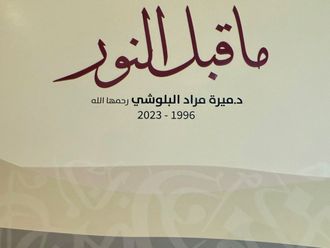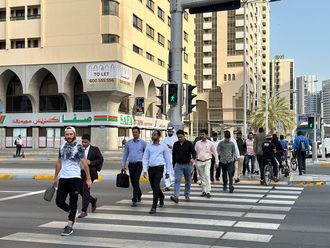
Abu Dhabi: Nearly 300,000 jobs in seven sectors will be filled by Emiratis until 2020, said the head of strategy of a governmental body tasked with finding employment for Emirati jobseekers.
Dr Abdullah Amer Al Bishr, head of the strategy, planning and policy at Abu Dhabi Tawteen Council (ADTC), said 298,000 jobs will be created for UAE citizens in seven industries including media, real estate, financial services, tourism, health care and energy.
Al Bishr told a seminar on ‘Emiratis in the private sector' held on December 26, some 65,000 jobs or 9.5 per cent of the total jobs in the emirate can immediately be filled by Emiratis because these jobs are high paying and skills required are matching those of the citizens on the ADTC's database.
Abu Dhabi plans to create more than 600,000 new jobs over the next decade, based on the forecast of 7 per cent to 9 per cent annual economic growth.
The government's goal is to disseminate quality education and provide effective human resource development programmes to improve the ability of the educational system to prepare highly efficient human capital and keep abreast with the job market demand. It also seeks to rectify the current imbalance between public and private sectors in providing employment for citizens.
Next decade
Al Bishr told the gathering of policy makers, employers and jobseekers that Emiratis account for only 4 per cent of workers in the private sector, which can absorb all job market entrants over the next decade.
He said a survey of 1,040 Emirati jobseekers with secondary school education showed 70 per cent of them are keen to work in the private sector and 61 per cent have no objection to working six days a week.
The authorities hope that some of the forum's recommendations will reduce the Emirati unemployment rate, which has reached 14 per cent in Abu Dhabi and is higher among women and in rural areas.
Obligation
As many as 35 per cent of prospective employees in the ADTC's database only have primary school education or less, and almost 80 per cent have no university qualifications.
While 80 per cent of the Emirati workforce were in government jobs, just 11 per cent of all jobs in the UAE were in the public sector, and it could not match private-sector growth.
Al Bishr said the private sector will drive the economic growth, while the public sector's workforce, which grew by 10 per cent last year, has few more jobs to offer.
Private companies in certain sectors including banks and trading companies are obliged to employ up to 4 per cent of its workforce from Emiratis annually. However, these companies say it is difficult to find suitable candidates, and that these employees often have unrealistic expectations in terms of pay and promotions. Mubarak Al Daheri, director-general of the Labour Ministry, said there is a huge wage gap between the private and public sectors. "Providing subsidies to bring the wages of an Emirati employee in the private sector in line with the public sector is a measure suggested but awaits approval by the authorities. It is submitted to the government and we hope it will be implemented shortly."
Wage gap
Humaid Bin Deemas, director of labour affairs at the Ministry of Labour, said closing the wage gap between the two sectors would remove what is considered a barrier to luring Emiratis away from government jobs.












